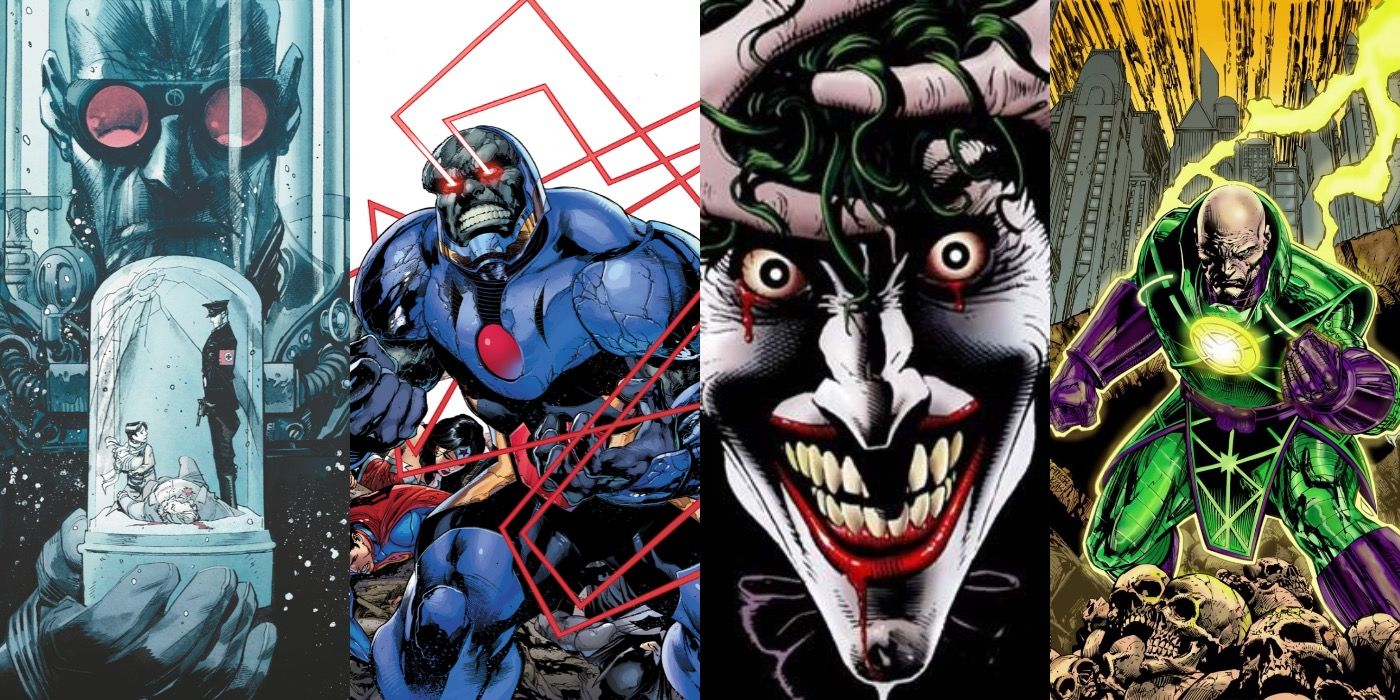The Most Memorable Comic Book Villains and What Makes Them Great
Comic book villains are more than just adversaries to their heroic counterparts—they are integral to the narrative’s depth and intrigue. From diabolical masterminds to complex antiheroes, these characters capture our imagination, offering a window into the darker corners of human ambition, fear, and power. 
A great villain often transcends the pages of comic books, becoming an icon in popular culture.
This article explores what makes these characters unforgettable and highlights some of the most iconic examples in comic book history.
The Essence of a Great Villain
Creating a memorable villain requires more than just evil deeds. The best antagonists share specific characteristics that make them relatable, feared, or even admired:
Motivation
A compelling villain has a purpose, often rooted in a personal story that justifies their actions in their own eyes. Their motives should be understandable, even if their methods are not.
Complexity
Depth is critical. One-dimensional villains fall flat, but those with nuanced personalities and internal conflicts resonate deeply with audiences.
Charisma
A memorable villain can command attention with their charm, intellect, or sheer presence, even when their actions are reprehensible.
Power
Whether through intellect, strength, or influence, a great villain must pose a real threat to the hero.
These traits form the foundation for some of the most iconic villains in comic book history, each bringing their unique flair to the art of villainy.
Villains Who Redefined Evil
Certain villains have redefined how we view evil, challenging the very notion of morality and blurring the line between good and bad.
The Joker (DC Comics):
Arguably the most iconic comic book villain, the Joker embodies chaos and anarchy. Unlike many villains, his motivations are nebulous, shifting between pure malice and philosophical commentary on society. His relationship with Batman—a battle of order versus chaos—is central to his appeal. The Joker’s unpredictability, coupled with his dark humor and psychological depth, ensures his place as a timeless antagonist.
Magneto (Marvel Comics):
A perfect example of a villain with complex motivations, Magneto fights for mutant supremacy, driven by a history of trauma and persecution. His actions are extreme, but his goals protecting mutants from human prejudice are understandable. This duality makes Magneto not just a villain but also a tragic antihero.
Doctor Doom (Marvel Comics):
Victor Von Doom is a master of both science and sorcery, making him one of the most formidable foes in the Marvel Universe. Doom’s arrogance and belief in his superiority drive his quest for ultimate power, but his underlying vulnerability a desire to save his mother’s soul adds depth to his character.
Lex Luthor (DC Comics):
Lex Luthor’s genius intellect and insatiable ambition make him Superman’s perfect foil. Unlike many villains, Luthor doesn’t rely on superpowers; his greatest weapon is his mind. His disdain for Superman stems from a belief that no one being should wield such godlike power, a perspective that raises thought-provoking questions about heroism and human agency.
Why We Love to Hate Villains
Villains are often more compelling than heroes because they embrace what we fear or secretly desire. They challenge societal norms, push boundaries, and sometimes expose uncomfortable truths.
Moral Ambiguity
Many iconic villains operate in shades of gray, forcing readers to question their own moral compass. Magneto’s fight for mutant rights, for instance, mirrors real-world struggles for equality, making his radical methods both relatable and unsettling.
Rebellion Against Convention
Villains often reject societal rules, embodying the rebellion many people fantasize about. This defiance, though destructive, resonates with audiences tired of conformity.
Psychological Complexity
A well-written villain taps into universal fears or desires, making their stories profoundly human. The Joker’s chaos reflects our fear of losing control, while Lex Luthor’s ambition mirrors humanity’s darker impulses.
These qualities ensure that villains remain unforgettable, as their flaws and contradictions reflect the complexity of real life.
The Cultural Impact of Villains
Comic book villains extend their influence beyond the pages, becoming symbols in literature, film, and even politics. They are analyzed in academic circles, adapted into blockbuster movies, and referenced in everyday conversations.
Film and Television
Villains like Thanos and Loki have gained mainstream popularity through their portrayal in the Marvel Cinematic Universe (MCU), showcasing their depth and complexity to global audiences. Heath Ledger’s portrayal of the Joker in The Dark Knight remains one of the most celebrated performances in cinema history.
Merchandising and Fandom
Villains often generate as much, if not more, merchandise and fan engagement as heroes. From costumes to collectibles, their appeal is undeniable.
Cultural Reflection
Villains often mirror societal fears or aspirations. During times of political upheaval, characters like Magneto and Lex Luthor resonate more strongly, reflecting real-world anxieties.
In this way, villains are more than characters; they are cultural touchstones that evolve with the times, keeping them relevant and fascinating.
Conclusion
Memorable comic book villains captivate us because they reflect the complexities of human nature. They force us to confront our fears, challenge our values, and explore the boundaries of morality. Characters like the Joker, Magneto, and Lex Luthor remain timeless because they are not just symbols of evil but deeply human figures shaped by their environments and choices.
In the ever-changing landscape of storytelling, one thing remains constant: a great villain is as essential to the narrative as the hero. They remind us that even in a world of superpowers, it’s the depth of character that truly defines greatness.
References
- The Joker’s Philosophy
- Magneto’s Origin and Motivations
- Doctor Doom: Marvel’s Greatest Villain
- Lex Luthor’s Psychological Depth
- Cultural Analysis of Comic Book Villains
- The Joker in Cinema
- Magneto and Real-World Parallels
- Villains in the MCU
- Comic Villains and Merchandise
- Villains as Cultural Icons






































